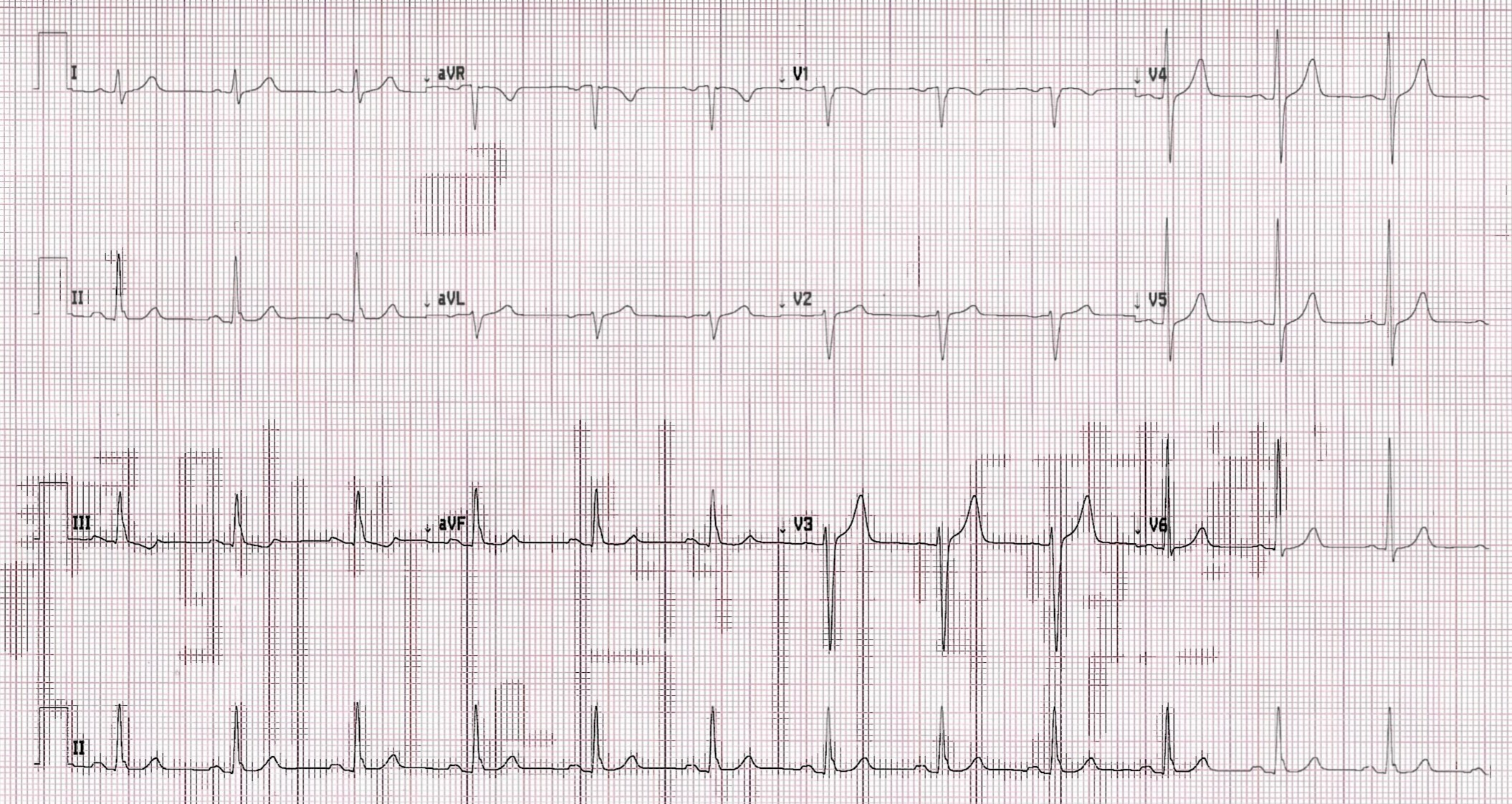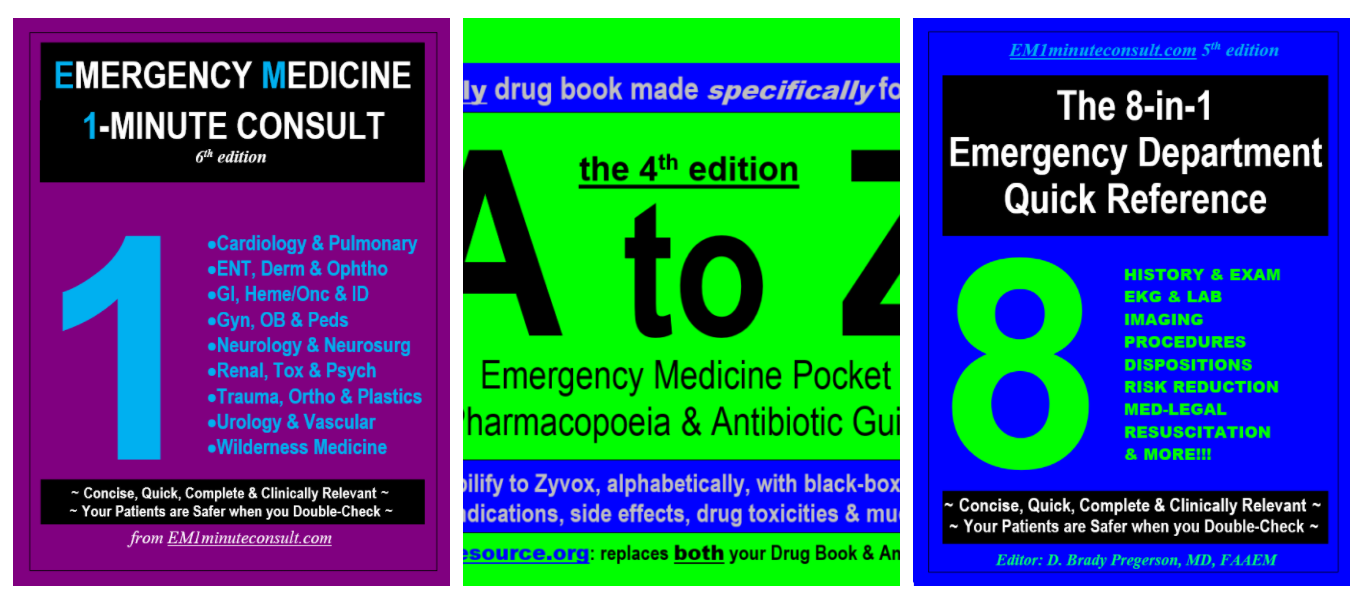History of Present Illness:
A man in his mid-60’s with a history of HTN and alcohol abuse is brought to the hospital by medics for generalized weakness. He says tonight he had “just one little drink”
Vital Signs & Physical Exam:
Vital signs are temp of 36.7, pulse of 55, RR of 16 and BP of 139/66. He is hard of hearing and a bit stinky
An ECG is done

Computer Read: NSR, normal ECG
What is the most likely cause of ECG findings in this patient?
- A) None of the below
- B) Blood clot (PE)
- C) ACS
- D) Drug toxicity
- E) Electrolyte issue
NSWERS & 1-MINUTE CONSULT
<<<<<<<<<<<<<<<<<<<<< ADVERTISEMENT & SPACER >>>>>>>>>>>>>>>>>>>>>
****************************************************************************
THE EMERGENCY MEDICINE POCKETBOOK TRIFECTA

- Emergency Medicine 1-Minute Consult, 5th edition
- A-to-Z EM Pharmacopoeia & Antibiotic Guide, 4th edition
- 8-in-1 Emergency Department Quick Reference, 5th edition (printable pdf only)
******************************************************************************
My ECG interpretation: NSR despite bradycardic in triage, subtle Osborne J waves in all 3 inferior leads

ANSWER:
- A) None of the below – CORRECT – was hypothermic
- B) Blood clot (PE)
- C) ACS
- D) Drug toxicity
- E) Electrolyte issue
1-Minute Consult on this topic: Click HERE and scroll
CASE CONCLUSION: ECG shows slowish rate and mild Osborn J-waves. Temperature was 33.6 C (92.5 F) when repeated after being in the ER for an hour. Of note, when I swim in a 62 F pool for 25 minutes my body temp is 90.4 F
CASE LESSONS:
- Although temperature should be checked on arrival it often is not and the ECG is one of the first clues to hypothermia
- If the patient feels cold, has inappropriate bradycardia or ECG with findings of hypothermia and the temperature is normal, recheck it to make sure it is accurate
- Alcoholics are at higher risk of almost everything including hypothermia
- It doesn’t have to be freezing out for someone to become hypothermic, especially if they are wet.
